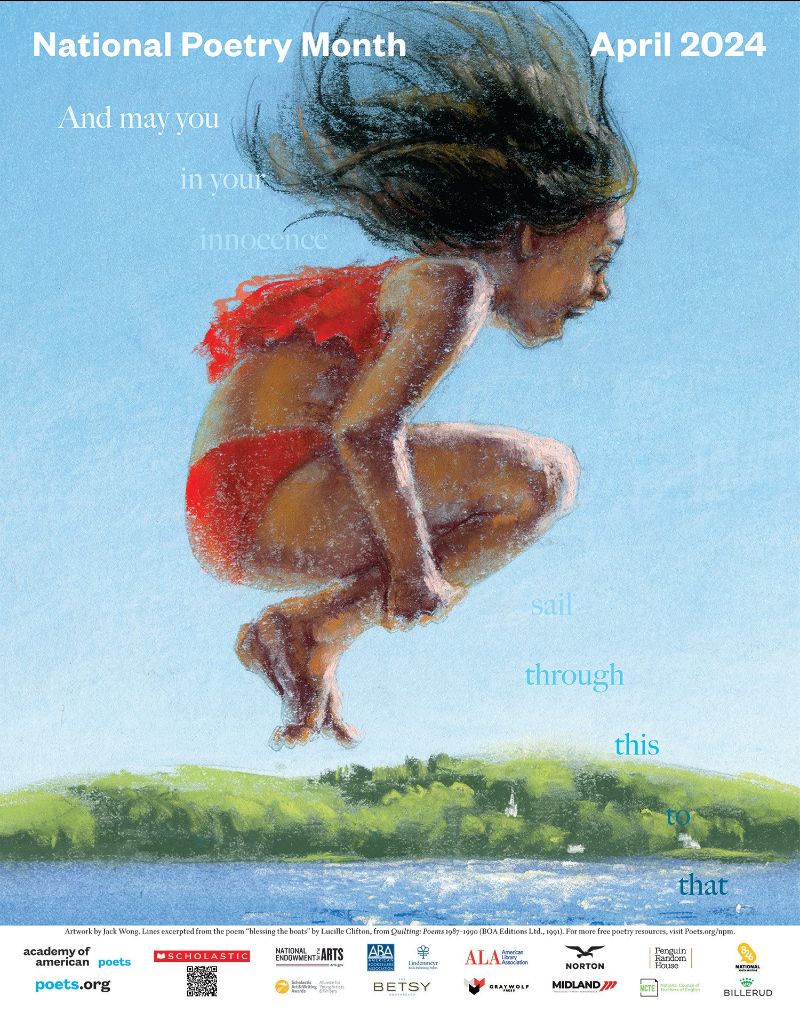Teach This Poem, though developed with a classroom in mind, can be easily adapted for remote learning, hybrid learning models, or in-person classes. Please see our suggestions for how to adapt this lesson for remote or blended learning. We have also noted suggestions when applicable and will continue to add to these suggestions online.

Look closely at the illustration in the National Poetry Month poster.
The following activities and questions are designed to help your students use their noticing skills to move through the poem and develop their thinking skills so they understand its meaning with confidence, using what they’ve noticed as evidence for their interpretations. Read more about the framework upon which these activities are based.
-
Warm-up: (pair-share) Join with a partner or small group. Discuss: What is a blessing? Why are blessings important? Share your answers with the class.
-
Before Reading the Poem: Look closely at the illustration in the National Poetry Month poster. What stands out to you in the image? Why? What do you notice about the color or anything else in the image?
-
Reading the Poem: Silently read “blessing the boats” by Lucille Clifton. What do you notice about the poem? Note any words or phrases that stand out to you, or any questions you might have.
-
Listening to the Poem: Enlist two volunteers and listen as the poem is read aloud twice, and write down any additional words and phrases that stand out to you. Or, you can opt to watch a video of the writer Elizabeth Acevedo reading the poem.
-
Small Group Discussion: Share what you noticed about the poem with a small group. How does the poem connect to the image from the beginning of class? What imagery does the poem evoke, and what imagery does the artwork evoke?
-
Whole Class Discussion: How might the poem be a blessing? Who might be the audience? What might the boats represent?
-
Extension for Grades 7-8: Create your own visual representation (drawing, photograph, collage, etc.) of the poem or another Lucille Clifton poem. Share your image with the class. Discuss how your images are similar to and different from both the poster and the poem from class.
-
Extension for Grades 9-12: In the video “Poetry Breaks: Lucille Clifton on What Poetry Is,” Clifton states that poetry is about “questions,” because “you come to poetry not out of what you know but out of what you wonder. And everyone wonders something differently and at different times.” Write a response to this video. Your response might be a poem, a song, or a personal response. What do you wonder? What are you still questioning? Share your response with the class.
The official 2024 National Poetry Month poster features artwork by award-winning children’s author and illustrator Jack Wong, and lines from “blessing the boats” by beloved poet Lucille Clifton. The poster can be downloaded as a PDF or freely delivered to a mailing address. Order your free copy.
Lyric poetry: a non-narrative poem, often with songlike qualities, that expresses the speaker’s personal emotions and feelings. Read more.
